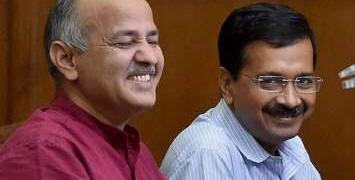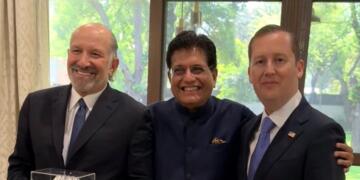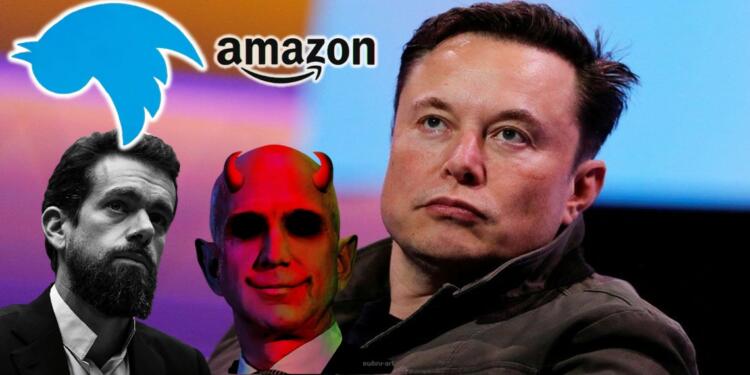The American big tech companies for long have acted as the judge, jury and executioner in the digital domain. They have brought about regime changes, crushed marketplace competition, and created a hyperpolarised world by selling hate — all without being held accountable for their actions to the users or the authorities. Their monopoly, nay, autocracy, however, is now being challenged and the tech behemoths are sweating hard at the prospect of it transpiring.
Reportedly, the Modi government has proposed Open Network for Digital Commerce (ONDC) — a UPI-like platform for e-commerce to break the duopoly of Jeff Bezos owned Amazon and Walmart owned Flipkart. ONDC will be an open network with an open-source methodology, allowing small, medium and micro enterprises to hop on the digital bandwagon and sell their products. The ONDC initiative aims to drive more innovation by including a wide range of players within its ambit.
Koshy T, CEO, ONDC, while speaking at the recently concluded Indian Venture and Alternate Capital Association (IVCA) Conclave 2022 remarked, “The real difference will come when we see small merchants from various cities being able to make their products equally visible without being a part of a large established platform”
He also cited an example, “Let’s say a very specialised handloom saree coming from Kanchipuram can get a defined way of making such a product visible. So, when a few of these things happen, it is going to unleash the power of the small and medium enterprises.”
Twitter – a hateful platform run by biased executives
One of the biggest platforms to thrive on hate; doing little to nothing to curb is Twitter. The Jack Dorsey founded platform has often been accused of silencing those that do not pander to Twitter and its white collared executive’s ideology. Former American President Donald Trump was booted out of the platform, just because his ideas were different from the conventional and he didn’t fit a particular vessel.
A platform that supposedly lives and dies by the hill of ‘freedom of speech’ has similarly allowed an anti-India campaign to flow while curbing those who tend to take a nationalist line. The platform has also picked sides in the ongoing Russia-Ukraine conflict, openly propagating Ukrainian propaganda videos.
Read More: Twitter is openly interfering in India’s elections. It’s time to ruffle its feathers now
Thus, when billionaire Elon Musk questioned if Twitter adheres to ‘Free Speech’ principle, 70 per cent of voters voted in ‘No’. He had added that the consequences of their opinions “will be important”.
Free speech is essential to a functioning democracy.
Do you believe Twitter rigorously adheres to this principle?
— Elon Musk (@elonmusk) March 25, 2022
Days later he tweeted, “Given that Twitter serves as the de facto public town square, failing to adhere to free speech principles fundamentally undermines democracy. What should be done?”
Given that Twitter serves as the de facto public town square, failing to adhere to free speech principles fundamentally undermines democracy.
What should be done? https://t.co/aPS9ycji37
— Elon Musk (@elonmusk) March 26, 2022
Musk buys 9.2 per cent passive stake in Twitter
One of the suggestions given to Musk was to create a new online platform that allows free speech in its true form. While Musk is yet to announce any such decision, he has bought a passive stake of 9.2 per cent in the microblogging platform, as per a US SEC (Securities and Exchange Commission) filing on Monday.
In the filing, Twitter Inc. disclosed that Elon Musk owns Twitter shares numbering to 73,486,938 as shares of common stock in his personal capacity. The news triggered Twitter shares soaring up by as much as 26 per cent on the day, before the market opened at $50.51 apiece, while shares of Tesla rose slightly.
Musk’s passive stake means he, as a shareholder has no active role in running a company. However, netizens believe that a free speech advocate like Musk can pressurise the American company to get its act right.
Last month, Musk said he was a “free speech absolutist” after he claimed Starlink had been told by some governments to block access to Russian news sources. In response, he said, “We will not do so unless at gunpoint”
Read More: Google threatened Australia of crippling their search infrastructure. Morrison gave an epic response
European lawmakers bring the sledgehammer to tech giants
Similarly, another major rebellion against the big tech monopoly is brewing in Europe. Reportedly, European lawmakers have passed a new law named Digital Markets Act (DMA), under which giants such as Google and Apple will be forced to open up their services and platforms to other businesses.
The announcement is the biggest regulatory move yet from the EU to act against what it defines as “anti-trust” or anti-competitive behaviour from mainly US technology businesses.
The technology giants like Google and Facebook have long enjoyed the lack of legislation in countries all over the world. These companies were able to circumvent the laws of the land and avoid paying taxes in countries where they are making profits. They have been influencing the domestic situation and have turned it into their monopoly.
It was last year that the Australian government forced search engines like Google to pay for news which drove their ad revenue for them. Google had threatened to leave the down under country but Morrison called the bluff and forced the Silicon Valley company to open up its wallet and rightly compensate the media publications.
The tech giants have had their day in the sun. As countries and governments around the world begin to understand the dangerous power these platforms hold; they are moving towards regulating them. The process may have started slow but it certainly has picked up pace in the last few years.

























